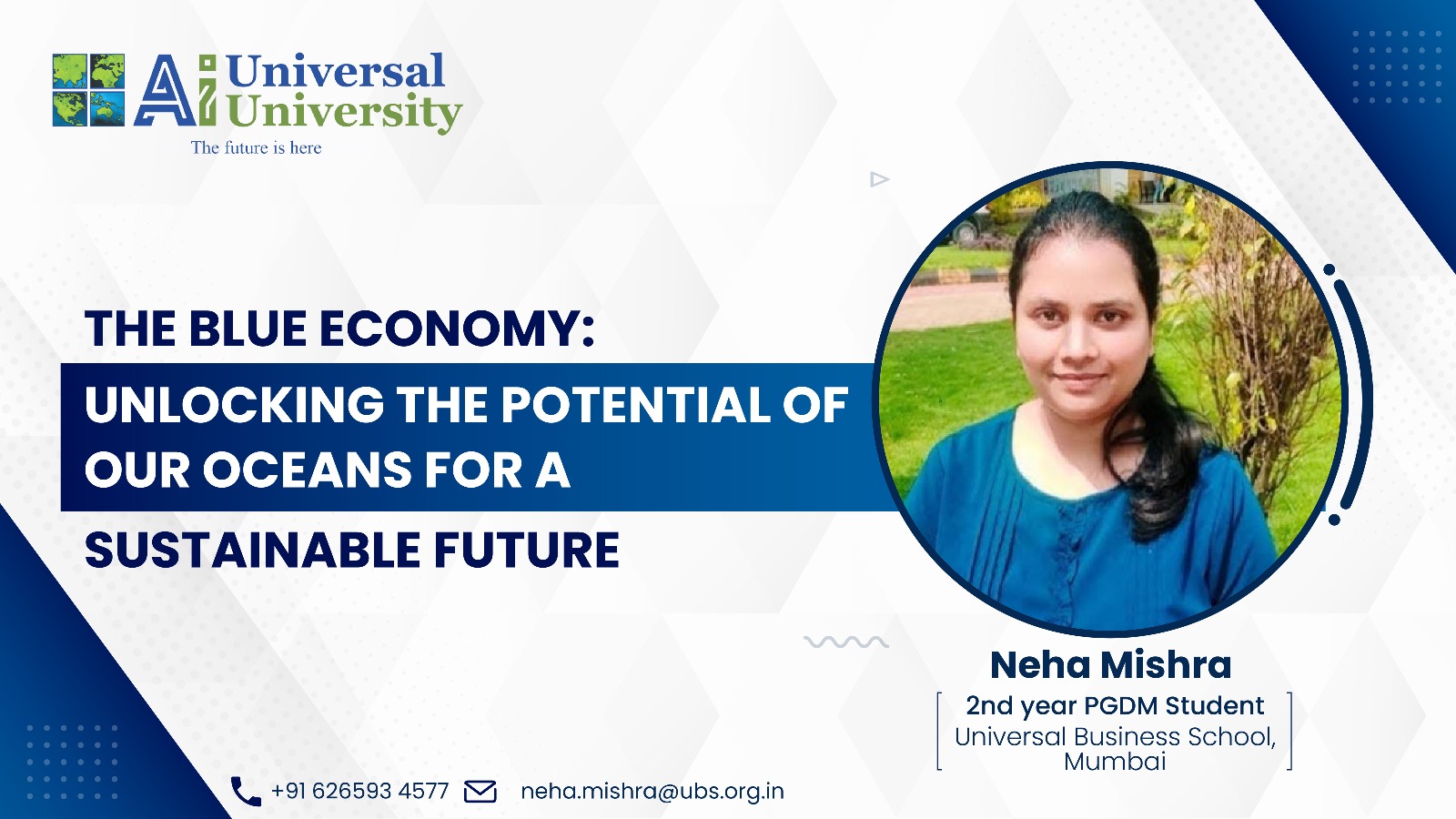Our oceans cover more than 70% of the Earth’s surface, and yet, we often overlook the vast potential they hold. The concept of the “Blue Economy” seeks to change that by recognizing the value of our oceans and harnessing their resources in a sustainable and responsible manner. In simple terms, the Blue Economy is all about using our oceans’ resources to create economic growth, while ensuring the health and well-being of marine ecosystems.
But what exactly does the Blue Economy entail? It encompasses a wide range of activities, from traditional sectors like fishing and shipping to emerging industries such as renewable energy, aquaculture, and marine biotechnology. The key principle underlying the Blue Economy is the idea that economic development and environmental sustainability can go hand in hand.
One of the fundamental aspects of the Blue Economy is fisheries and aquaculture. Fish is a vital source of protein for millions of people worldwide, and sustainable fishing practices are crucial to ensure the long-term viability of this resource. The Blue Economy emphasizes responsible fishing techniques that allow fish populations to replenish and maintain healthy ecosystems. Additionally, aquaculture, or fish farming, plays a significant role in meeting the growing demand for seafood while reducing the pressure on wild fish stocks.
Renewable energy is another important component of the Blue Economy. Our oceans hold immense potential for generating clean, sustainable energy. Technologies like offshore wind farms, wave energy converters, and tidal power systems can harness the power of ocean currents and tides to produce electricity. By investing in these renewable energy sources, we can reduce our reliance on fossil fuels and mitigate the impacts of climate change.
Tourism is a thriving industry that benefits from the Blue Economy. Coastal areas and marine ecosystems attract millions of tourists each year, offering opportunities for economic growth and employment. Sustainable tourism practices ensure that these natural wonders are preserved for future generations. By promoting responsible tourism, we can minimize the negative environmental and social impacts associated with mass tourism and instead focus on sustainable development that benefits local communities.
Another promising aspect of the Blue Economy is marine biotechnology. The oceans are a treasure trove of biological resources, including microorganisms, algae, and marine animals, that have the potential to revolutionize various industries. Marine biotechnology explores the use of these resources for applications like pharmaceuticals, cosmetics, and biofuels. By unlocking the secrets of marine organisms, we can discover new solutions to pressing challenges and create innovative products and technologies.
Furthermore, the Blue Economy recognizes the importance of marine spatial planning. This approach involves carefully managing and organizing human activities in coastal and marine areas to minimize conflicts and maximize the benefits for both the environment and the economy. By considering the diverse range of stakeholders and balancing their interests, we can ensure the sustainable use of marine resources and protect sensitive habitats.
To fully realize the potential of the Blue Economy, collaboration and international cooperation are crucial. As our oceans are interconnected, addressing challenges such as pollution, overfishing, and climate change requires collective action on a global scale. Governments, businesses, communities, and individuals must work together to develop policies, invest in research and innovation, and implement sustainable practices.
Investing in the Blue Economy is not only an opportunity for economic growth but also a necessity for the well-being of our planet and future generations. It offers a pathway to sustainable development that takes into account the interconnectedness of our economies, societies, and the environment. By embracing the principles of the Blue Economy, we can ensure that our oceans continue to provide us with food, energy, livelihoods, and a sense of wonder for years to come.
In conclusion, the Blue Economy represents a paradigm shift in how we view and utilize our oceans. It encourages us to recognize the value of marine resources and ecosystems while promoting sustainable economic development.
Neha Mishra
PGDM Program
2nd Year Student
Universal Business School, Mumbai
Email ID – [email protected]
Contact No. – 626-593-4577





